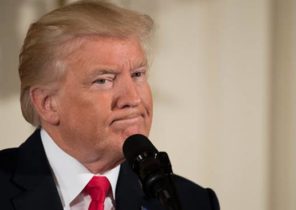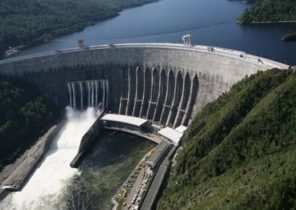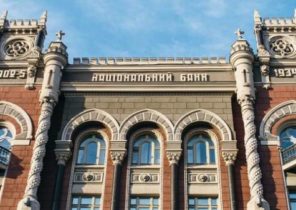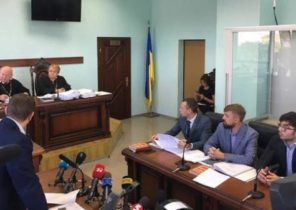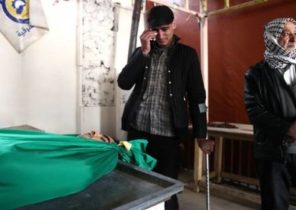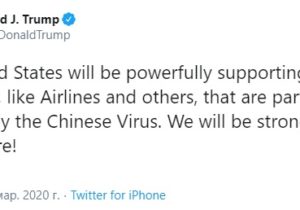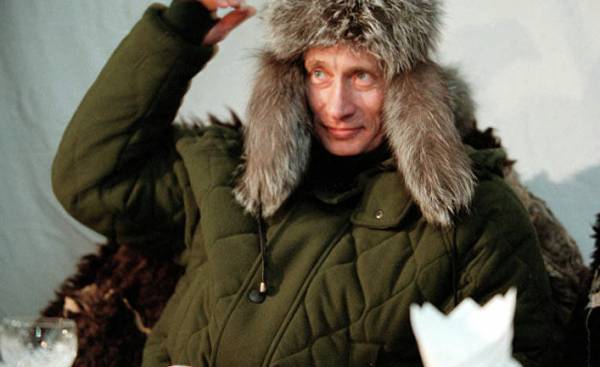
Before modern Russia face a range of internal and external problems. The first problem is that Russia still is a strategic enemy of America. For this reason, the United States and its European allies sought to extend greater influence in Eastern Europe and the former Soviet Union, the official Declaration of dissolution which was launched on 26 December 1991. A day earlier, the eighth President in the history of the USSR Mikhail Gorbachev resigned and handed in his resignation to the President, handed them over to the new President of Russia Boris Yeltsin.
Within three months, from September to December 1991, the republics of the Soviet Union (including the Russian Republic) decided to secede from the Soviet Union and thus the Soviet Union that existed from 1922 disintegrated into 15 independent States. The Soviet state ceased to exist. In the past all the goals pursued by the Bolshevik revolution, stopped the activity of the Communist party. Revolution, which lasted from 1918 to 1921, against the Russian Emperor and the feudal class, proclaimed the power of the Communist party, based on the works of Marx, Engels, Lenin and Stalin.
With the collapse of the Soviet state and the loss of Communist party power and influence, and from that moment Russia began to focus on Western capitalist States in the field of politics, economy, security and culture, brought its influence and the Church. On the international scene the collapse of the Soviet Union meant the end of the cold war between NATO and the countries of the Warsaw Treaty Organization. As a result, the USSR was no longer a part of the regional and international systems, an ally of the Middle Eastern States and of Europe or a party to the anti-imperialist liberation movements. Many regimes lost the support has weakened, survived the reform and began to focus on USA and Europe.
At the same time, the collapse of the Soviet state was preceded by a number of internal problems such as corruption, economic collapse and reforms of Gorbachev in the updating of the Communist party in the framework of “perestroika” and his moves to change the principles underpinning the Russian economy. The Russian government was faced with internal crises, chief of which, of course, had an economic character. At the same time, he kept reserves of strategic weapons that pose a greater threat to the defensive systems of the countries of the West. Happened intellectual and ideological separation from the Communist party and the theory of Marx and Engels, was discredited leaders of the party that led the Soviet Union.
Russia had to reject all this, to achieve a “psychological maturity” that characterizes the policy of Russia, headed by Putin, a former security officer, who, however, continued to view the Soviet Union as a necessary counterweight to the West in the international arena. In the distribution of power in Russia between Medvedev and Putin see the way Russia’s implementation of its domestic and foreign policy. Medvedev’s presidency was a period of orientation to the West, rapprochement and integration with them. Special attention was paid to the creation of economic institutions and the strengthening of mutual trade with the West, political rapprochement with the United States and European countries. The parties took similar positions on a number of international crises, as evidenced by the policy of Russia in connection with the events of the “Arab spring”, its neutral position in the UN security Council, when decisions were made about military intervention in Libya and Syria. We can say that Russia agreed to the destruction of the infrastructure of these countries in exchange for deals on gas and other economic issues. In the era of Medvedev did not attach much importance to the fact that Western countries represent a strategic threat to the national security of Russia, and that Russia could become their next target, after the goals are accomplished the so-called “Arab spring.” First, Western countries wanted to move in Asia and Eastern Europe as well as in Russia’s neighboring countries, however, by achieving these goals, they could focus on Russia.
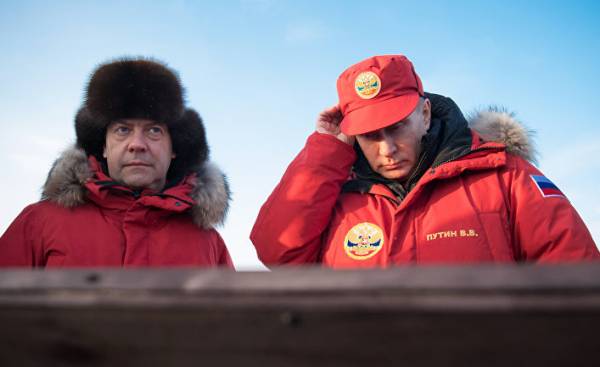 © RIA Novosti, Sergey Guneev | go to Photobacterium of the Russian Federation Vladimir Putin and Prime Minister Dmitry Medvedev
© RIA Novosti, Sergey Guneev | go to Photobacterium of the Russian Federation Vladimir Putin and Prime Minister Dmitry Medvedev
The distribution of roles between Medvedev and Putin was a good idea. When Putin came to power, it became obvious that the “Russian bear” is back. Friendship with Europe and the USA was impossible due to their ambition to build a unipolar world where only the United States would have the right to determine the fate of the globe, the destiny of States and the global economy. Moscow felt that such a strategy, in particular, NATO expansion (entry into the bloc Russia’s neighboring States, the deployment of strategic weapons) threatens the existence of the Russian state.
Thus, major political, economic, and social changes in the Russian government has not helped Russia to come out from among strategic adversaries of the West. Realizing this, Putin decided to achieve several advantages. So, progress has been made in the Crimea and Ukraine. There were a number of tactical steps on the Syrian issue, namely the fight against terrorist groups (ISIS, prohibited in the Russian Federation — approx. ed.) who are trying to strike at the sovereignty and unity of the Syrian state, which would contribute to the further spread of terrorism in Asia, including to Chechnya, and countries adjacent to Russia. Russia realized that it would mean the collapse of national States in the middle East, particularly in Iraq, Libya, Yemen, Syria and Egypt. These countries are historical allies in the Soviet Union.
Russia was at once to take steps to stop the “Arab spring”. However, Putin managed to prevent the implementation of the project “greater middle East”, as it was on the side of the Syrian regime and provided him with the necessary military support. So, now Russia has a military base in Tartus, in Syria it has deployed advanced anti-missile system, in addition, the Russian armed forces took part in the battles for Aleppo and Idlib. In addition to all this, you need to note the Russian presence in the Mediterranean and in the Persian Gulf, the strategic agreement with Egypt and a presence in the Red sea, as well as political and diplomatic engagement to resolve international crises. All this lies at the heart of the strategy to ensure national security of Russia. As Putin put it earlier, “the fall of Damascus would mean the fall of Moscow”.
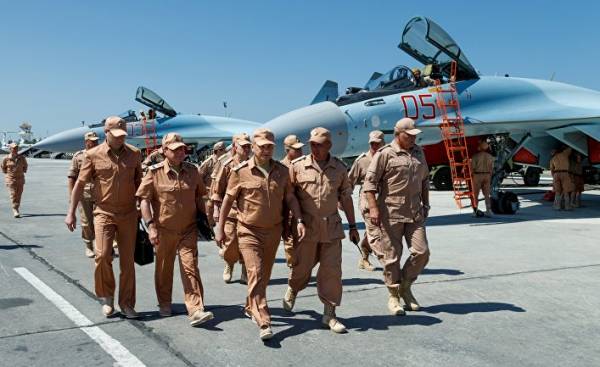 © RIA Novosti, the Russian defense Ministry | go to fotomancer of defence of Russia Sergey Shoigu at the airbase “Hamim”
© RIA Novosti, the Russian defense Ministry | go to fotomancer of defence of Russia Sergey Shoigu at the airbase “Hamim”
The roots of the problems of national security of Russia date back to the times of the Soviet Union. It was a very strong state, Putin is inclined to believe that his collapse was to blame the US and European countries. At the meeting of Putin with high-ranking officials from the Ministry of defense of Russia in the resort city of Sochi, he called for improvements in Russian weapons, said, “In the process of developing new weapons systems we take into account all the international commitments assumed in the past.” President Putin said: “Our goal is to effectively eliminate any military threat that Russia might face in the field of security, including the risks associated with the deployment of strategic missile defense system, implementation of the concept of global lightning strike, and the beginning of the information war.”
“We will continue to do everything necessary in order to ensure the strategic balance of forces”, — said the President, referring to “very dangerous” attempts to change the existing international system. In addition, Putin stressed that the strategic balance established in the late 40’s — early 50-ies of the last century, was averted a major international conflicts.
According to the President, his country pays special attention to the development of weapons, whose work is based on new physical principles not previously used in the military industry. Among them are laser, RF and beam (weapons, based on charged particle beams — approx. ed.), weapons, and many other types of sophisticated weapons. The Russian leader noted that this weapon allows you to make accurate strikes on major military targets, including weapons systems, military equipment and infrastructure of the enemy. Putin added: “In developing new weapons, we take into account the assumed international obligations in this sphere, but, unfortunately, some States seek to violate earlier agreements, for example, the agreement on missile defense. Moscow will do everything possible in order to preserve the international balance of power.”
In this context, one should pay attention to developed by Russia’s national security strategy, which relies on several important elements. Innovation and the modernization of the army, the decision of global problems and crises, strengthening the role of international law in relations between States, the use of primarily political and diplomatic methods of conflict resolution and the use of legal methods of settlement. In addition, you need to consider that the expansion of NATO to Russia’s borders poses a threat to the national security of Russia, as a consequence the first task of leadership is to prevent NATO expansion. Finally, let’s remember how the Israeli defense Minister Avigdor Lieberman commented on the Russian military activity in Syria, “the Israeli army, its movement, and the weapons began to be affected by the Russian armed forces, and this bothers me”.
